West Valley’s Willo Rodriguez on The Past, Present & Future of Puerto Rican Water Polo
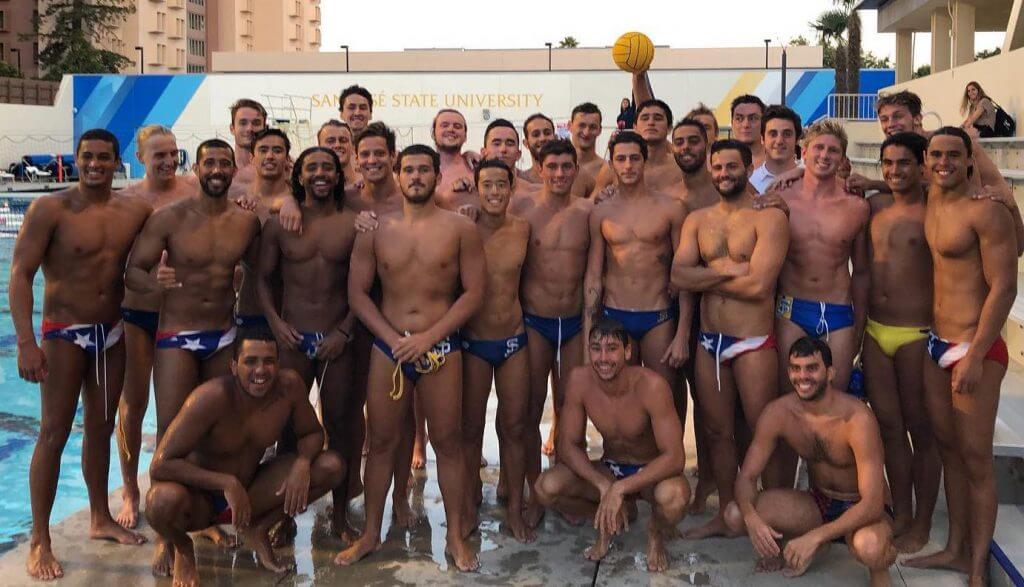
Editor’s Note: In one of the seminal matches in Eastern water polo history, on November 13, 1977, Pittsburgh faced Bucknell at the Joseph C. Trees Pool for the Eastern Water Polo League Southern Division Championship. A rematch of the 1976 final, won 14-12 by Pitt, with less than a minute remaining the host Panthers held a two-goal lead and appeared headed to another NCAA men’s tournament as the East’s best team. But, in a memorable turn of events, the Bison rallied to force overtime, and won the game 21-20 on a shot by Mark Gensheimer in the first minute of sudden death.
Following is the fifth in a series of articles about the participants and circumstances surrounding one the more memorable polo matches in Eastern intercollegiate history. The first two were an interview with Scott Schulte of the 1977 Bucknell squad, and a discussion with Jorge Machicote, a member of the opposing Pitt team. Third is a discussion with Jay Fisette, who scored the tying goal with seconds to go in regulation. The fourth is an interview with Miguel Rivera, architect of the Pitt men’s water polo program.
There’s a compelling history of Puerto Ricans competing for American colleges in men’s water polo—a story that entails a leap of faith—and often a long flight from the sunny confines of their Caribbean island to the vastness of the West Coast.
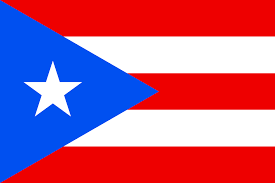 William “Willo” Rodriguez is one of those who followed pioneers like Jorge Aguilera, Carlos and Rafi Gonzalez, Manfredo Lespier, Carlos Steffens and others to California for polo. In 1997 he traveled 3,300 miles from San Juan to Los Angeles, beginning an adventure that took him from Bell Gardens High School to West Valley College and to Pepperdine—from which he earned undergraduate and doctoral degrees.
William “Willo” Rodriguez is one of those who followed pioneers like Jorge Aguilera, Carlos and Rafi Gonzalez, Manfredo Lespier, Carlos Steffens and others to California for polo. In 1997 he traveled 3,300 miles from San Juan to Los Angeles, beginning an adventure that took him from Bell Gardens High School to West Valley College and to Pepperdine—from which he earned undergraduate and doctoral degrees.
Rodriguez has subsequently traversed the world of competitive polo as a coach for La Verne, USC, Pepperdine, West Valley—where he has led the Vikings since 2016—and as head coach for the Puerto Rican men’s national team.
[2019 Pan American Games Men’s and Women’s Water Polo: Select Quotes]
Swimming World spoke with Rodriguez about a life-long pursuit of polo perfection, the decades-long history of players from his homeland excelling at polo on the mainland, and the future of the sport in Puerto Rico, whose rich past has recently been buffeted by obstacles, both natural and man-made.
– You start playing water polo as a child in your native Puerto Rico—then moved to California to play high school ball.
I was a high school student and playing for the junior national team in Puerto Rico. I attended the Junior Pan American Games and a couple of Junior Olympics here in California. I made friends with Commerce, another Hispanic team that spoke Spanish. Brenda Villa, who is my same age, was on that team and I became good friends with her older brother, Edgar. Later on, I coached her younger brother Uriel at Pepperdine.
[On The Record with Brenda Villa, USA Water Polo Hall of Famer]
Sergio Macias the former athletic director at Cerritos Community College, who is their women’s head water polo coach, was on the team. We made a good connection and friendship.
I had done some research prior to coming—you alluded to some of the better players in the history of water polo in Puerto Rico, Carlos Steffens and Ivan Ortiz—guys that played at Cal and Pepperdine. What I found was that a lot of them had come to California for their senior year in high school. In addition, my mom thought it was a good idea to practice my English.
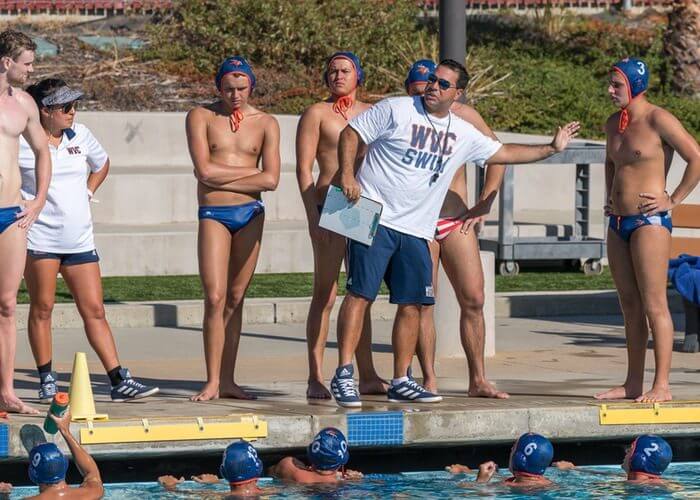
Rodriguez with West Valley College players. Photo Courtesy: West Valley College Athletics
If I remember correctly, Brenda was 16 at the time and already playing with the national team. I reached out to her and some other friends from the [Commerce] club about going to high school with them. And they told me about their high school, which was Bell Gardens High School.
I got an offer [to stay with] a Latino family, so maybe it wouldn’t be as difficult to make that transition. I took that offer and [for] my senior year of high school, I left Puerto Rico and went to commerce and played high school water polo.
How hard was it for you as a 17-year old—but also for your family—to move so far away from home?
At first it was challenging. I come from a single [parent] household. That Christmas I wasn’t able to come home, so I did get homesick.
My mom trusted me. I used to send my grades back home; I was a straight “A” student and was extremely focused, so I think that helped.
Still, it was difficult. However, the people at Commerce embraced me and became some of my best friends ever. I keep in contact with them till this day—they made me feel part of the family.
– You got to play for Terry Schroeder at Pepperdine.
It was fantastic. Terry has been on six Olympic teams, four of them as a player. He was a three-time captain and two times was the head Olympic coach. It’s a great honor that he gave me a shot.
In addition to that, I started my coaching career at Pepperdine. I think I was 25 at the time and might’ve been the youngest assistant coach in the country. I had a lot of hands-on experience because Terry was traveling with the Olympic team.
I would be by myself with the team for a couple of month. And here you have a 25, 26-year-old running a Division One program. But I learned really quickly—the process of DI recruiting, how to work with the NCAA clearing house, getting students registered, working with the housing department. Before I knew it, I was running the entire program—of course under the leadership of the head coach at the time.
It was fantastic because you’re up against the country’s best head coaches. I got to coach against Adam Krikorian at UCLA, Kirk Everest at Cal. You have to be ready to make decisions extremely quickly.
I’m extremely grateful for the opportunity that Coach Schroeder gave me as an assistant coach. Then, after I left at Pepperdine to pursue other opportunities. I came back as a head coach from one year—with Merrill Moses.
Plus, I started my doctorate degree. As of today, I have two degrees from Pepperdine, which makes my mother very happy
– Moses was also with the national team; how did he end up coaching with you at Pepperdine?
I was at USC at the time coaching for Jovan [Vavic]—during the time where USC won six straight national championships. Coach Schroeder was with the Olympic team and he contacted me about coming back to Pepperdine to coach.
At the time, it didn’t make sense, given that USC was doing so well—and financially, I was getting paid a little more. [Schroeder and I] talked about maybe going back to grad school and pursuing a doctorate. I could get head coaching experience—and once he was done with the Olympic team, Schroeder would return as head coach.
I was like: You know, that sounds like a good idea. My last year at USC was 2011; I started at Pepperdine in 2012 with Merrill. He was still competing with the Olympic team when he came to visit Pepperdine. I think he was leaving on a Saturday to go to Turkey to play. We talked a little bit and I said: Hey, would you like to coach? He had already talked to Coach Schroeder about the opportunity.
[On The Record with Greg Lonzo, Claremont-Mudd-Scripps Men’s and Women’s Water Polo Coach]
That Wednesday he got hired and called and canceled his commitment to going overseas and. We coached together for two years and it was awesome.
– You were also a teammate of Greg Lonzo, who had a great career at Pepperdine and now coaches the men’s and women’s teams at Claremont Mudd Scripps.
Oh, he’s a great guy. And an amazing athlete. Greg was definitely one of the best attackers I’ve ever played with, and a phenomenal coach.
We had the opportunity to go heads up when I was coaching at La Verne. And, it was a great honor that while I was there, we were able to beat Claremont, both on the men’s and women’s side. Up to that point, on the women’s side La Verne had never beaten Claremont—and on the men’s it had been a long time since they had won.
– You also have your history with, West Valley College. You played two years there for Bruce Watson and then you returned and took over for him.
I was a straight “A” student at Bell Gardens High School. I had a very good academic career. However, I spoke Spanish. So when I took the SATs, I didn’t do very well.
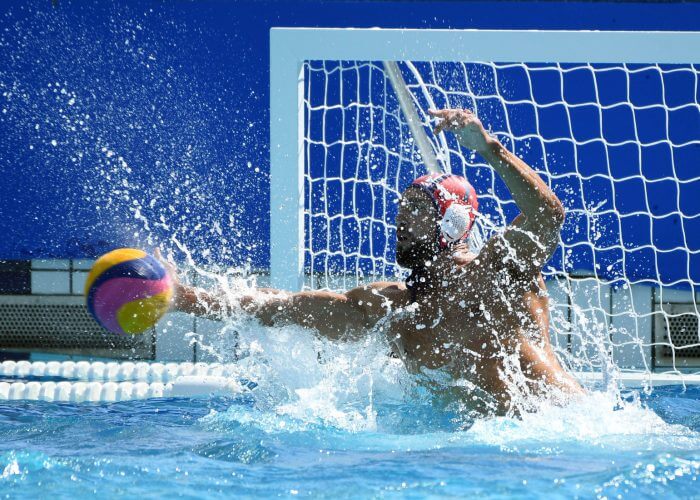
Merrill Moses. Photo Courtesy: Robert Hanashiro-USA TODAY Sports
I had to look for options. Living in Southern California, the best junior or community college around was Golden West. At the time, I think they had won nine state titles in a row. So naturally I thought that’s where I should go. I called the back to Puerto Rico, to talk to some of the older players to ask for advice. And the response that I got was surprising. They told me: Son, we don’t go to Golden West. We go to West Valley College.
I asked why, and they explained to me; yes, you could go to Golden West and, and win a state title. But, we have a long tradition with Coach Watson. He’s had guys from Puerto Rico since the early eighties.
He honeymooned in Puerto Rico, so he had really good relationships down there. In addition to that, he had a couple of teammates at San Jose State who were from Puerto Rico.
So, there was already an established connection. I did a little bit more research. I found out that it was in Northern California, in San Jose. And I came in contact with another gentleman from Puerto Rico who was a great help to me.
His name is Jorge Aguilera. He was kind enough to get on the phone and speak with my mother and explain what a junior college was, how things work. He told her about Bruce Watson, how he’s one of the best coaches in the history of the sport in this country.
[On The Record with San José State’s Bruce Watson]
My mom felt comfortable enough to let me [travel to San Jose]. He picked me up from the airport and took me to my first practice.
Once I got here and I started spending time with Bruce. He is an amazing coach. Unbeknownst to me, Bruce had never won a state water polo title. He had been to the finals a bunch of times and had lost to Golden West. Well, in my freshman year we beat Golden West.
My second year we went undefeated. Then I transferred to Pepperdine. Later on—once I started coaching—Bruce and I would talk shop and strategy. And, he followed my career as I moved around as a coach.
In 2015, he gave me a call saying: Hey Willo, there’s a chance I might become the San Jose State head coach, cause they’re going to bring back men’s water polo coach. So that means there’s going to be an opening here at West Valley. Would you like to come back home?
I took up the offer—and here we are.
– In a state with so much polo, it makes perfect sense that there is highly-competitive men’s and women’s junior college programs.
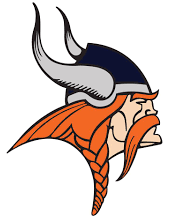 We’re very lucky in California; the community colleges are able to offer collegiate water polo. There’s close to 50 teams on the women’s side and 38 on the men’s—last time I looked. There’s a good amount of competition. It’s a phenomenal alternative to students who financially cannot afford to go to four-year schools or just need to get a little bigger, faster, stronger.
We’re very lucky in California; the community colleges are able to offer collegiate water polo. There’s close to 50 teams on the women’s side and 38 on the men’s—last time I looked. There’s a good amount of competition. It’s a phenomenal alternative to students who financially cannot afford to go to four-year schools or just need to get a little bigger, faster, stronger.
It’s highly competitive. You’re going against some really good, seasoned coaches and you have to strategize.
I’m extremely grateful for [the opportunity] to go to West Valley, because I developed not only as an athlete but also as a student. I don’t know that I would have succeeded at Pepperdine if I had gone in as a freshman—given that the language I spoke at home was Spanish.
I love it. For someone who has coached in DI and was a DI athlete, I think it’s a great arena. There’s guys that are coaching right now at community colleges that have national team experience. As you know, I coached at the Pan American games and—thanks to the quick thinking and the experience I’ve had here—I was able to make adjustments,
– From the standpoint of bringing in Puerto Rican players, how essential is the JC system?
The connection has really helped develop Puerto Rican water polo—given that there were athletes coming out here since the eighties. That relationship started with Bruce Watson while attending San Jose State. He was really good friends with Rafi and Carlos Gonzalez.
And it’s a great opportunity to help athletes continue, not only their education, but their athletic careers, especially, because you’re taking an SAT exam and those exams are extremely challenging, especially if English is a second language.
It’s a phenomenal option, because if not you have to stay in Puerto Rico; it’s a lot more difficult to pursue water polo there than it is out here.
So, that relationship is absolutely significant.
– Given current health conditions, how hard will it be for the Vikings to get back in the water and compete next fall?
Of course, there’s concerns. We’re preparing for the worst—and hoping for the best, I looked at the calendar yesterday and we have 15 weeks before the first day of practice. Everything, every single option is on the table.
Maybe we start August 15, maybe we push it back a bit. Maybe we started early September. If needed, maybe even cancel the season.
To my knowledge, no decision has been made. I’m in constant communication with our athletic director, who talks to our commissioner, very often. And the commissioner talks to people at the state level as well.
– Puerto Ricans have American passports and are U.S. citizens—but that doesn’t mean they’re easily integrated into life here in the States. Is that your experience?
Not for me. I did not experience that at all. Again, the places I lived in and the people who I associated with have treated me like family. My experience has been positive and amazing.
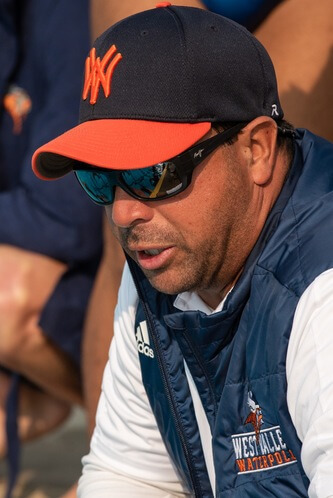
Photo Courtesy: West Valley Athletics
I coached and worked with multiple Olympians at the highest level. I’ve worked at the university level at Pepperdine and USC. I know things have changed. I know that some of the guys who opened the doors for us might have gone through situations [like that] back in the seventies and eighties.
But if you’re asking me personally, every institution I’ve worked at La Verne, Pepperdine or USC, I felt accepted me. And the relationships I have with other colleagues, I’ve never experienced anything like that. They just know me as well as the coach, either at Pepperdine or at West Valley, the coach at La Verne.
– There’s a rich history of success for Puerto Rican polo players, starting from the ‘70s to the present day. How is that history influencing how you work with your players and create an environment for them to succeed?
I think we got lucky. For the older generation, Lee Walton [former San Jose State coach] and the generation who got here in the eighties to play for Bruce Watson. Those coaches were kind enough to open the doors for us and allow us to experience and pursue higher education and athletic careers here in California.
And I’ve done the same thing. I had six athletes from Puerto Rico, two girls and four guys. It’s helped to continue the sport, given the current situation of water polo in Puerto Rico. Because after a certain age, it is very difficult to pursue water polo [there].
Again, thanks to those relationships, students now know that where to go and they know they have an opportunity to not only pursue an athletic career, but also [their] education. I’m very proud that the California junior college system offers both because at the end of the day you’re not going to go pro playing water polo. You could go to Europe and try your luck, but that’s very difficult to pursue. Here, education and competing go hand in hand.
– It’s symbiotic; the California system needs that influx of talented, dedicated players, and those Puerto Rican athletes who want to get better, opportunities don’t appear to exist on the Island for them.
There are a number of factors and some of them are man-made. Some of them, nature is still undefeated. The very biggest one is economic; at the end of the day Puerto Rico’s an island. It’s very small and just other opportunities started to arise during the times when Steffens and Aguilera competed, opportunities were pretty equal.
If you’re a very good athlete, you can play basketball and make good money. You can play baseball. There’s a couple of guys that play for the Yankees and the Mets and you got guys playing with the Astros. Those guys have multi-million dollar contracts, Boxers—if you end up being one of the top ones. When Felix Trinidad beat Oscar de la Hoya he made $10 million.
So, if you’re a, a kid growing up and you get the opportunity to play water polo versus maybe playing volleyball, there’s a professional volleyball league [in Puerto Rico] and you can make maybe tens of thousands of dollars in a year. On water polo, if you’re very good, you might get a partial scholarship.
So, there’s more opportunity. Number two [is] economics. To build a pool, sometimes it can be a multi-million-dollar investment. To build a volleyball court or basketball court or even a baseball field—that’s a lot cheaper.
Here in California, there’s a pool at every high school.
The third factor [is] we’ve had a few… right now we’re dealing with this Corona epidemic. Two years ago, we had a major hurricane that wiped out a few pools and shut down a lot of facilities.
When you take all of those together, sports like water polo, which is not revenue generating, suffer. Sports that are revenue generating are a lot easier to run and fund.
– Do you see where new seedlings will sprout and perhaps result in a gradual rebirth of the sport? Is there a plan for this?
There is a map, and of course it’s going to be challenging. There’s Reynel Castillo, a passionate director of water polo who’s trying his best to promote the sport and make it grow starting with the age group programs. He was at [the Pan American Games] in Lima as a referee—he’s a high-ranking official.
He’s doing a great job, not only promoting the sport before focusing more on development. He did a phenomenal job finding funding from the Puerto Rico Olympic committee to get both the men’s and women’s teams to participate at the Pan American games.
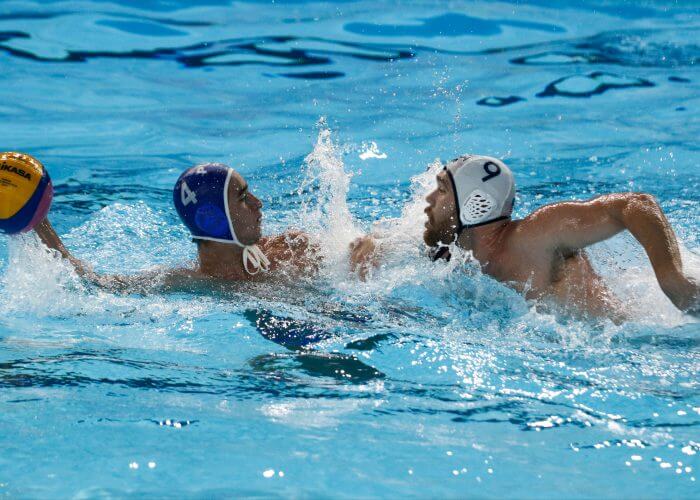
Puerto Rico’s Jose Loubier struggles with USA’s Alexander Bowen in the 2019 Pan American Games. Photo Courtesy: Paul Vallejos
Then we have people and the States, myself or Carlos, who are not only helping financially but also with other kinds of help. Carlos brought both his daughters, who are Olympic gold medalist, to provide free camps. That’s never been done. And to my knowledge, we’ve never had any other Olympic gold medalists come to Puerto Rico to give clinics.
The blueprint is there, I think the biggest issue is the financial component. given that, like I said, some of these other federations do naturally very well. Like baseball. I have a former teammate of mine who played with me here at West Valley, Reggie Rivera. His son was playing 10 and under under baseball and he told me they were 600 teams on the island.
If you count the pools, I think there’s maybe 35. If you compare, it’s a numbers game and a financial one.
– Puerto Rico—like much of South America—has a long and glorious history of polo. What will it take to revive programs in Cuba, Mexico, Colombia and other countries?
The answer to your question is yes. For many years, countries like Mexico, Puerto Rico and Colombia had very good teams. At one point in history, Cuba was one of the best teams in the world having world-class athletes like Ivan Perez, He’s originally from Cuba and ended up becoming a star and later played for Spain in the Olympic.
The same thing happened with the Perrone brothers; Felipe is now the team captain for Spain. Again, it comes down to economics. While we were at the Pan American Games, I had good conversations with head coaches from Cuba and from Mexico—friendly talk in the cafeteria. Of course, in the water, as you saw, there’s some passionate games and such.
Sometimes they can get physical, but everybody is on the same boat. And we had the discussion [that] maybe we should play more amongst each other, given that travel is easier. We’re just so much closer to each other. Going to California is far. And when you come from Mexico, Cuba, Puerto Rico or Columbia, it could be very expensive.
Can that be an avenue to help water polo regain its status in the region? Absolutely. You know, instead of playing each other every two years, maybe play each other every year at cheap sites, to give equal opportunity for everybody to attend.
I think that would be phenomenal for the sport. Rivalries—as you know—drive athletics.




Excelente!
Excelente trabajo Willo. Gracias por tu pasión por el deporte. Si pudiéramos contagiar con ese buen virus a unos cuantos mas…
Great article Bro!!!! Proud of you kiddo!!!